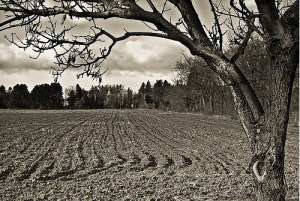What’s a sabbatical?
So, I am taking a sabbatical. I recognize that it is a word that most of us have heard but only a miniscule fraction have ever experienced. If you work in the academic space you may be more familiar with the concept. But many people have asked me– “Now, what is a sabbatical? What will you do?” I will give you the answer to “what I am doing?” in a couple weeks. For now, I want to show you where the concept comes from in Scripture.
In his book, Playing God, Andy Crouch identifies 4 structures that God gave to His people to ‘make space’. Structures that create margin for listening, resting, celebrating, and remembering. Andy calls these structures a ‘sabbath ladder’. They can best be illustrated by imagining the agrarian society in which they were formed. They would show up in the work of harvesting.
- Gleaning– An opportunity every day to not take everything, to leave profit at the edges.
- Sabbath– An opportunity every week to take an entire day of rest, to let the crops grow on their own.
- Sabbatical– Every 7 years, an opportunity to leave the field alone entirely and to live simply on what comes up with no cultivation.
- Jubilee– Every 50th year (after 7 sabbaticals) to celebrate a once in a lifetime event where debts are forgiven, land that has been pledges as security for debts is returned to its original family, and slaves are freed.
At each stage of the ladder, the powerful are asked to relinquish more of their power and privilege NOT because God does not intend wealth to be invested productively and yield an abundant harvest, but because both the wealthy and the poor are image bearers and only be climbing the sabbath ladder will the powerful be assured that they are making room for others to glean, to rest, and to feast.
Andy Crouch p.249
Getting to ‘sabbatical’
I want to talk about 3 of them as a means to understanding why sabbatical is important.
Gleaning
And when you reap the harvest of your land, you shall not reap your field right up to its edge, nor shall you gather the gleanings after your harvest. You shall leave them for the poor and for the sojourner: I am the LORD your God.
Leviticus 23:22
Farmers would intentionally leave a percentage of their harvest in the field. They would budget, prepare and operate at 95% or 96% of capacity so that there was space for the poor to have a dignified opportunity to collect and care for themselves.
This is not charity. It is a discipline to not always max out and push productivity to its very limit. We are invited each day to do less than we could possible do so that we have the opportunity to say yes to what God might have for us.
Sabbath
Six days shall work be done, but on the seventh day is a Sabbath of solemn rest, a holy convocation. You shall do no work. It is a Sabbath to the LORD in all your dwelling places.
Leviticus 23:3
The challenge is disarmingly simple: one day a week, not to do anything that we know to be work.
Our ability to disengage from the activities that give us identity, meaning and agency in our public worlds tells us volumes about whether our activity is fruitful image bearing or increasingly desperate god playing.
Andy Crouch
I rarely feel such clear signs of fatigue and anxiety on days that are filled with travel, meetings, and assignments. Yet when I stop… when I cease for the sake of sabbath… then I recognize my exhaustion. Without sabbath, I would be dangerously ignorant of the true condition of my soul.
We are invited each week to remember that we are dependent creatures, to celebrate that we have a Father who loves us, and to trust that He will provide all that we need. That trust is demonstrated by not working.
Sabbatical
…the land shall keep a Sabbath to the LORD. 3 For six years you shall sow your field, and for six years you shall prune your vineyard and gather in its fruits, 4 but in the seventh year there shall be a Sabbath of solemn rest for the land, a Sabbath to the LORD. You shall not sow your field or prune your vineyard. 5 You shall not reap what grows of itself in your harvest, or gather the grapes of your undressed vine. It shall be a year of solemn rest for the land. 6 The Sabbath of the land shall provide food for you, for yourself and for your male and female slaves and for your hired worker and the sojourner who lives with you, 7 and for your cattle and for the wild animals that are in your land: all its yield shall be for food… 20 And if you say, ‘What shall we eat in the seventh year, if we may not sow or gather in our crop?’ 21 I will command my blessing on you in the sixth year, so that it will produce a crop sufficient for three years. 22 When you sow in the eighth year, you will be eating some of the old crop; you shall eat the old until the ninth year, when its crop arrives.
Leviticus 23: 3-7, 20-22
“If a weekly sabbath demanded a certain amount of faith and trust, a ‘sabbatical year’ must have required tremendous discipline from people whose entire sustenance came from the land. It would require advanced planning, storing up sufficient grain in the years preceding the sabbath year.” (Andy Crouch p.258)
If you worked hard for 6 years, what would you do in that 7th? It became an ideal time for pilgrimage, for worship and study, for sport and song. “The 7th year ensured that even people whose existence was largely defined by subsistence would explore the broader and deeper implications of image bearing.” (Crouch)
If weekly sabbaths seem out of reach, a prolonged sabbatical of 6 months to a year must sound impossible. For me, it has been a discipline to learn to take a weekly day off– to be faithful in a small thing so that I can be faithful in something greater. My weekly sabbaths create opportunities for a rich life- I take piano lessons, I coach soccer, I read, I go for long runs… I have taught myself how to rest in preparation for entering in to the space that this sabbatical season will give.
Once more from Andy…
Sabbaticals are a tremendous privilege in the most precise sense of the word: the accumulated benefits of past exercises of power. I realize that even raising the idea of a sabbatical year, in our unjust (that is, idolatrous) society, will provoke envy and discontent for many readers who feel they have no such option. But it is crucial that we recognize that the sabbatical year was a privilege commanded by God (emphasis by Andy) for the people of Israel. The Creator God is not an idol who extracts endless work while dangling the promise of eventual leisure– he is an abundant God fully capable of providing everything we need to be faithful to HIS cosmic pattern of work and rest. (emphasis by me)
You can argue from Scripture that sabbath and sabbatical are not options for the people of God. But that gets personal really fast. Instead, may you rejoice that God has given you meaningful work and the opportunity to walk through a door to rest and rejuvenation if you choose.
-David

